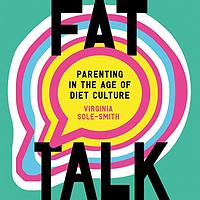Take a photo of a barcode or cover
challenging
informative
reflective
medium-paced
emotional
informative
reflective
slow-paced
Lots of research, but mostly on what doesn't help people feel comfortable in their bodies
As someone who works with children suffering from eating disorders, this book is extremely, extremely important.
challenging
informative
inspiring
reflective
medium-paced
informative
I need all the help I can get as I dismantle the anti-fat beliefs I’ve held all my life. This book was great!
This book kinda turned a lot of things upside down for me. She posed many ideas I was oblivious to or hadn’t considered. I’ll admit I don’t have any answers after reading, and might be a little more confused about some things. But I also found it thought-provoking, inspiring, affirming, encouraging, and important. I had never heard the terms “thin privilege” & “fat phobia”. I hadn’t considered how this disproportionately affects minority populations. I feel like this book was a very valuable & worthwhile read and that some of her points will stick with me for awhile.
She specifically references the scarlet letter in her discussion about required reading and how it reinforces dated ideas about beauty and thinness. She believes men are encouraged to get bigger and take up more space in order to remain in power. Whereas women are encouraged to take up less space as a way to be controlled. Therefore, anti-fat bias is rooted in Cis-white-patriarchy.
She references sports and athletics as problematic especially for elites. Elite athletes are under extreme body scrutiny and it’s acceptable for others to comment on, monitor and try to modify the athletes body. I never thought about how some sports/activities don’t even offer large enough sizes for all bodies, so larger kids are discouraged/prohibited from even trying.
I also never considered talking openly about being fat in a neutral way- as more of a descriptor like any other (dark hair, tall, young, etc) rather than assigning negative connotations to fatness. “You’re not fat, you’re beautiful” sends the message that you can’t be fat AND beautiful.
Also interesting was her argument that having a larger BMI doesn’t automatically lead to poorer health outcomes. It does lead to lower quality medical care, lower pay, lesser job opportunities in addition to a slew of other prejudices. Larger kids are deemed less intelligent, more specialized, already a problem.
She believes weigh-ins at Dr appointments are problematic and optional. She disagrees with schools weighing students, and assigning meal logs, good foods/bad foods lessons, and obesity avoidance lessons.
She specifically references the scarlet letter in her discussion about required reading and how it reinforces dated ideas about beauty and thinness. She believes men are encouraged to get bigger and take up more space in order to remain in power. Whereas women are encouraged to take up less space as a way to be controlled. Therefore, anti-fat bias is rooted in Cis-white-patriarchy.
She references sports and athletics as problematic especially for elites. Elite athletes are under extreme body scrutiny and it’s acceptable for others to comment on, monitor and try to modify the athletes body. I never thought about how some sports/activities don’t even offer large enough sizes for all bodies, so larger kids are discouraged/prohibited from even trying.
I also never considered talking openly about being fat in a neutral way- as more of a descriptor like any other (dark hair, tall, young, etc) rather than assigning negative connotations to fatness. “You’re not fat, you’re beautiful” sends the message that you can’t be fat AND beautiful.
Also interesting was her argument that having a larger BMI doesn’t automatically lead to poorer health outcomes. It does lead to lower quality medical care, lower pay, lesser job opportunities in addition to a slew of other prejudices. Larger kids are deemed less intelligent, more specialized, already a problem.
She believes weigh-ins at Dr appointments are problematic and optional. She disagrees with schools weighing students, and assigning meal logs, good foods/bad foods lessons, and obesity avoidance lessons.
This is an exceptional book that should be read by everyone who has children, anyone who interacts with children, and anyone who has been harmed by diet culture in any way. The book is a perfect blend of science and research interspersed with practical and empathetic advice for raising children today. Virginia Sole-Smith is doing incredible work with her podcast and newsletter, and I'm so happy that she wrote this important book as a resource in this space too.



